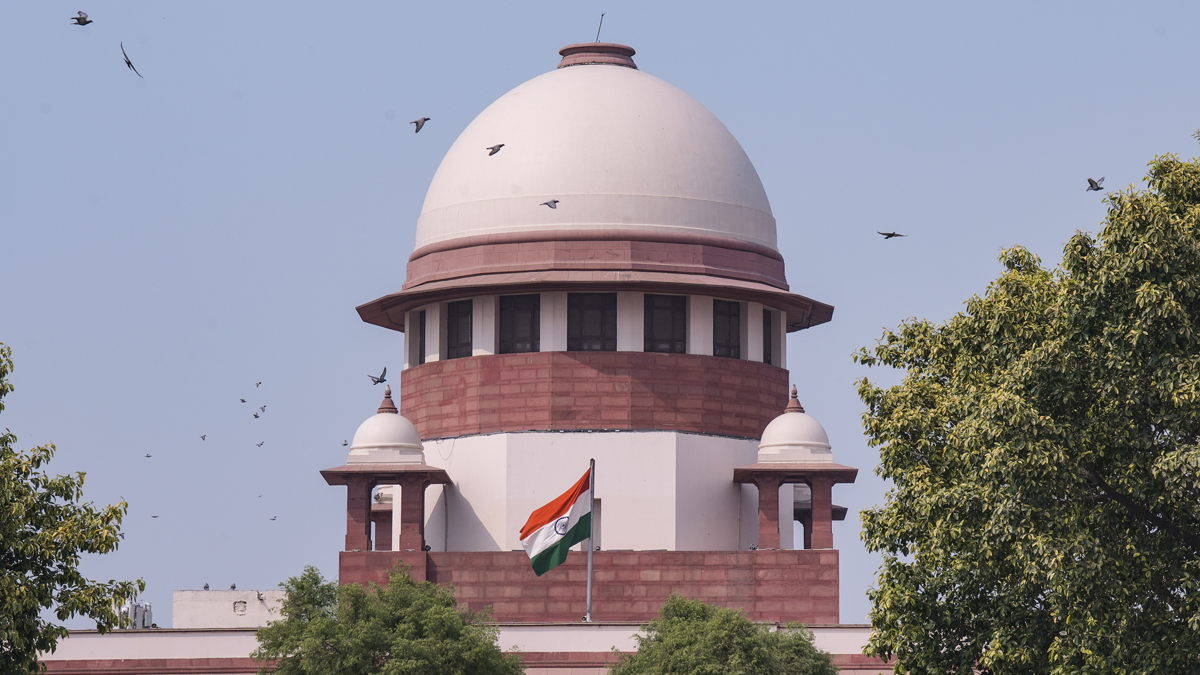SC orders to ease KYC process for acid attack survivors, iterates digital access is a fundamental right
 New Delhi: View of the Supreme Court of India, in New Delhi, Wednesday, April 16, 2025. The apex court has begun hearing on a batch of petitions challenging the constitutional validity of the Waqf (Amendment) Act, 2025. (PTI Photo/Manvender Vashist Lav)(PTI04_16_2025_RPT222B)
New Delhi: View of the Supreme Court of India, in New Delhi, Wednesday, April 16, 2025. The apex court has begun hearing on a batch of petitions challenging the constitutional validity of the Waqf (Amendment) Act, 2025. (PTI Photo/Manvender Vashist Lav)(PTI04_16_2025_RPT222B)
Stressing that digital access is a fundamental right, the Supreme Court on Wednesday issued a slew of directions to ease the Know-Your-Customer (KYC) process for acid attack survivors who may have suffered eye injuries and other persons who may suffer visual impairment or low vision.
A Bench of Justices J B Pardiwala and R Mahadevan passed the judgment on two public interest litigation (PIL) petitions filed on these issues which highlights the systemic barriers faced by acid attack survivors and visually impaired individuals in accessing digital services.
The top court has declared the right to digital access is an intrinsic component of the right to life under Article 21.
The ruling marks a significant step toward inclusivity, ensuring that those with facial disfigurements or visual impairments are not excluded from the digital economy.
The Court held that the government must ensure that digital processes such as KYC are universally accessible to all, including persons who may have suffered facial disfigurements or persons with disabilities and this is guaranteed under Articles 21 (right to life and liberty), 14 (right to equality) and 15 (protection against discrimination) of the Constitution of India.
The Supreme Court’s ruling emphasised that digital access is integral to the right to life as it enables participation in economic and social opportunities in an increasingly digital world. The court directed the Centre to frame inclusive policies addressing the digital divide that disproportionately affects disabled individuals.
The judgement has been hailed as a victory for acid attack survivors who often face social stigma and economic exclusion.
"We have held there is need for change in KYC processes for the disabled. We have given 20 directions. The petitioners who suffer from acid attacks and blindness have been unable to complete the KYC process due to facial disfigurements. Constitutional provisions confer a statutory right on the petitioners to be accommodated in the KYC process. It is imperative that digital KYC guidelines are revised with the accessibility code. In the contemporary era, where economic opportunities etc. through digital (access) Article 21 needs to be re-interpreted in light of such technology and the digital divide increases," the Court said.
The Court directed that all government portals, learning platforms, and financial technology services must be universally accessible to all vulnerable and marginalised sections.
"At this juncture, we wish to observe that in the contemporary era, where access to essential services, governance, education, health care and economic opportunities are increasingly mediated through digital platforms, the right to life under Article 21 of the Constitution must be re-interpreted in light of these technological realities,” the judgement reads.
“The principle of substantive equality demands that digital transformation be both inclusive and equitable. As already pointed out, persons with disabilities encounter unique barriers in accessing online services due to the lack of accessible websites, applications and assisted technologies. Similarly, individuals in remote or rural areas often face poor connectivity, limited digital literacy and the scarcity of content in regional languages, effectively denying them meaningful access to e-governance and welfare delivery systems,” the judgement authored by Justice Mahadevan reads.
By embedding digital accessibility within fundamental rights, the Supreme Court has set a global precedent.
India